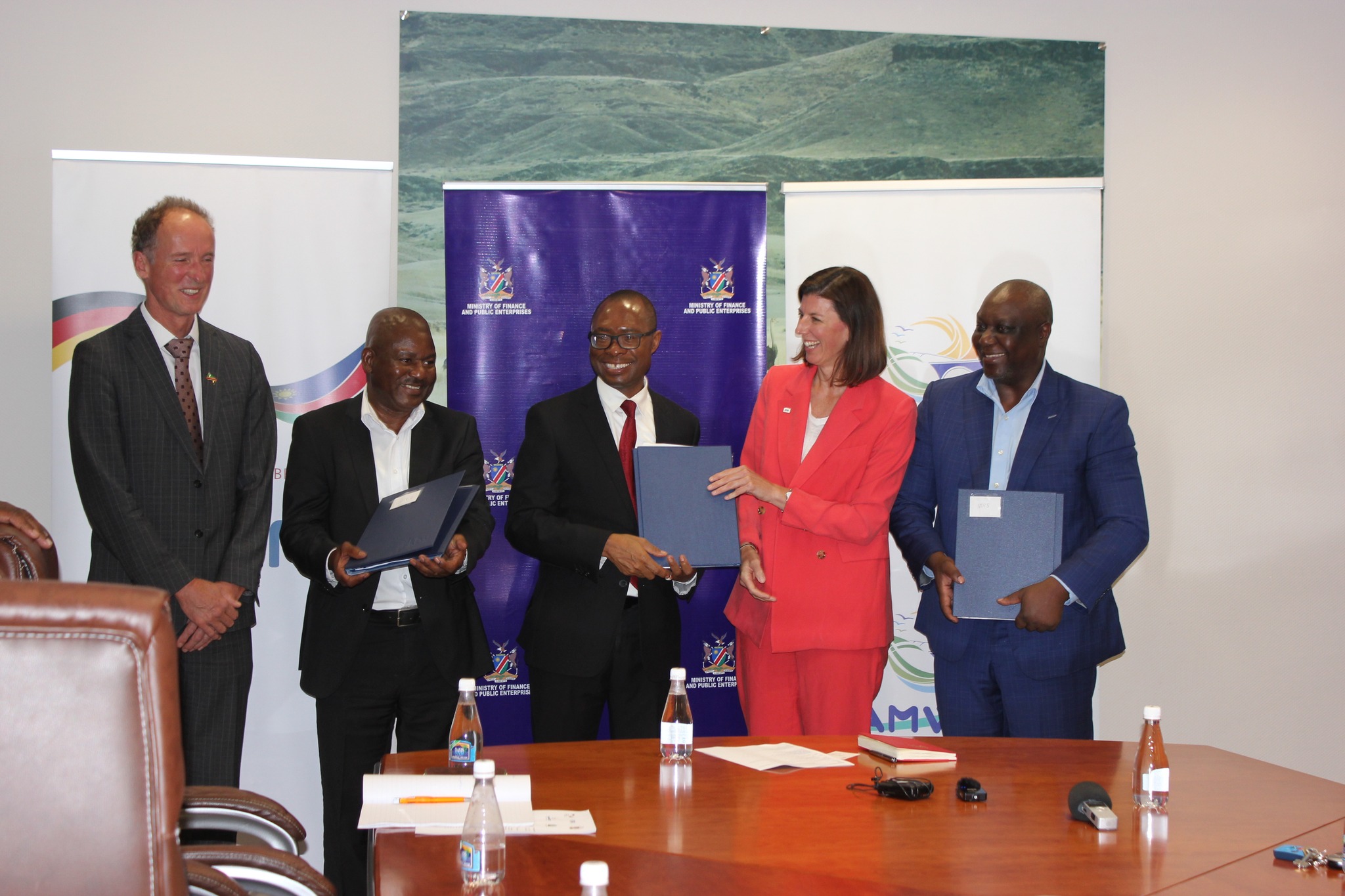
By: Staff Writter
Namibia and German state-owned investment and development bank KfW, on Tuesday, signed
two loan agreements of €40 million (N$746 million) and €50 million (N$932 million) for the
construction and rehabilitation of key Namibian roads and water infrastructure to foster
economic development.
Another loan agreement of €20 million (around N$373 million) was signed by government,
Roads Authority and KfW to rehabilitate and upgrade the B2 section between Usakos and
Karibib.
Finance and public enterprises minister Ipumbu Shiimi, NamWater, NamWater CEO Abraham
Nehemia, Roads Authority CEO Conrad Lutombi, and KfW Namibia country director Beatrice
Lucke were signatories to the loan agreements worth around N$2 billion.
Regarding water infrastructure, the N$746 million concessional loan is meant for Namwater to
secure water supply for the central area of Namibia through the construction of a second Direct
Potable Reclamation Plant (DPR 2).
The first Direct Potable Reclamation Plant was constructed in 1968.
In 2002 a new DPR plant was built next to the original plant, but produces water only for
irrigation purposes.
“DPR 2 is intended to be implemented by NamWater at the same time as upgrade works are
carried out for the City of Windhoek wastewater treatment plants. This will increase the amount
of water that can be reused, allowing for up to 50% of Windhoek’s water supply to come from
the two Direct Potable Reclamation Plants. This highly innovative, resourceful and not least
sustainable approach is not unique in a Namibian context but worldwide,” reads a joint
statement.
The second phase of the “water” loans, includes replacing parts of the pipeline Omdel-
Wlotzkasbaken and Schwarzekuppe-Swakopmund, as well as the rehabilitation of parts of the
Calueque-Oshakati Canal and a new water pipeline for the Oshikuku bypass.
Regarding the loan to upgrade the B2 section between Usakos and Karibib, the signatories noted
that Namibia has one of the best road networks in Africa. However, access and availability to
transport services, as well as the opportunity to participate in social and economic life, is
unevenly distributed regionally and between the different income groups.
“The Namibian government has recognised the importance of transportation in its strategic
objective set out in the NDP5 and HPP2 for the country to become a logistics hub in the SADC
region. Despite the massive investments in transport infrastructure over the last decade, funding
needs are still huge due to ageing roads, underserved rural areas and insufficient funds for
maintenance,” reads the joint statement.
They agreed to include local companies in the construction, allowing Namibian SMEs to
implement at least 25% of the contract amount. The contractors, who have not been named, have
been trained throughout more than 30 years of cooperation in the transport sector between
Namibia and Germany, says the statement.
“The labour-based construction approach creates jobs by training local workers and SMEs that
can take up work in the road construction sector. Additionally, since 2016 KfW funds the
expansion and maintenance of major corridor roads through concessional loans. Large parts of
the main corridor roads are being rehabilitated and partly extended to contribute to the economic
development of the country. To date, the construction of more than 1 800 km of roads has been
co-financed by the Federal Republic of Germany through KfW in close cooperation with the
Namibian Government through Road Authority.”









Comments